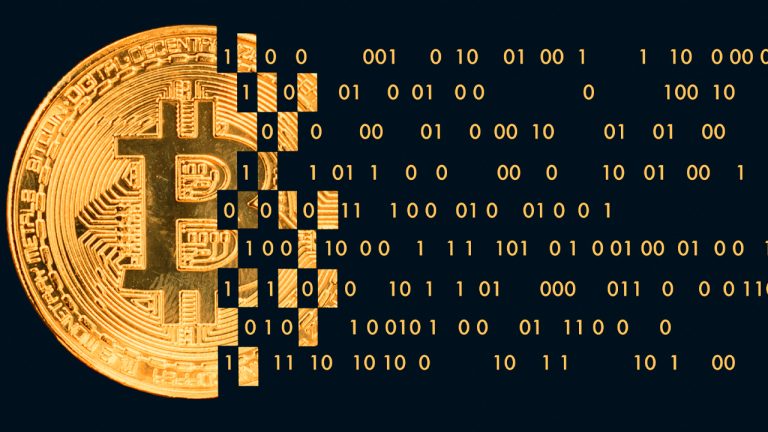
The investment round’s backers include Bain Capital, Syncracy Capital, 1kx, Robot Ventures, and Placeholder, bringing Celestia’s total fundraising to $155 million.
The Celestia Foundation has secured $100 million in a funding round led by Bain Capital Crypto, with contributions from investors like Syncracy Capital, 1kx, Robot Ventures, and Placeholder.
According to a Sept. 23 announcement, the capital raised brings Celestia’s total fundraising to date to $155 million after a recent launch as one of the first modular data availability layer protocols.
The startup targets one of the key challenges in blockchain networks: scalability and data availability.

The roadmap comes amid fierce competition in data availability among rivals such as EigenDA and Avail.
Celestia, a layer-1 data availability network, unveiled a technical roadmap charting a path to scaling block size to 1 gigabyte, according to a Sept. 5 blog post.
The roadmap’s core objective is to “relentlessly scale to 1-gigabyte blocks, bringing a massive increase in data throughput to Celestia’s rollup ecosystem,” Celestia said. Blocks are bundles of transaction data grouped together on blockchain.
Celestia’s focus on block size reflects an industrywide push to enhance the scalability of blockchain networks by lowering transaction costs and more efficiently storing and retrieving data. Celestia competes with protocols such as EigenDA and Avail, as well as mainnet Ethereum.

With the additional security feature, EigenLayer aims to protect the service it offers while guaranteeing its availability to all clients.
EigenLayer has implemented an additional security feature for its EigenDA data availability service on the Ethereum mainnet to prevent Sybil and distributed denial of service attacks.
According to an X post from EigenDA, the whitelist security measure utilizes either an internet protocol address or Ethereum's elliptic curve digital signature algorithm (ECDSA) authentication to ensure enhanced protection and secure access to the service.
ECDSA authentication is a cryptographic method for verifying the identity of a user, device or system. It is based on the principles of public-key cryptography and uses elliptic curve cryptography to ensure secure authentication.

Avail, led by a Polygon co-founder, raises $75 million to tackle Web3 challenges like fragmentation and data availability.
Modular blockchain base layer Avail has secured $75 million through several investment rounds, as venture capitalists recognize the need to address data availability issues across blockchains.
On June 4, Avail closed $43 million in a heavily oversubscribed Series A round, adding to its existing corpus of $32 million from previous pre-seed and seed rounds. Anurag Arjun, co-founder of Avail, plans to continue directing the funds to build the permissionless unification layer for Web3.
Avail is headed by Arjun, a co-founder of Polygon, who aims to address three major challenges within the Web3 ecosystem: blockchain fragmentation, insufficient data availability (DA) and limited scalability.

Celestia will become an option for data availability within the Polygon CDK software.
The Celestia network will integrate with Polygon’s chain development kit (CDK) sometime “early next year,” according to a Dec. 11 announcement. The integration will provide an “easily-pluggable component” for Polygon-based networks to use Celestia for data availability.
The announcement claimed that transaction fees could be reduced by more than 100 times if networks stored compressed transaction data on Celestia instead of Ethereum. The integration coming in early 2024 will simplify this choice, providing this option within the Polygon CDK software itself.
“This is the broadband moment for Web3,” said Polygon co-founder Sandeep Nailwal. “The ability to launch a high-throughput ZK-powered Ethereum layer 2 as easily as deploying a smart contract will do for blockchain adoption what high-speed fiber did for Web2 applications.”

Avail launched a bridge to transmit data availability attestations to Ethereum, potentially allowing for lower fees on some layer 2s.
Blockchain network Avail has launched a testnet data availability bridge to Ethereum, according to a July 7 announcement. Once testing is completed, the bridge will allow developers to easily create “validiums” or low-cost layer 2s that do not store full transaction data on Ethereum, the announcement stated.
Avail was originally created by Polygon Labs, but was spun off as an independent project in March. Polygon’s co-founder, Anurag Arjun, is also the founder of Avail.

Layer-2 rollup networks like Optimism, Arbitrum, Polygon zkEVM, and zkSync Era lower transaction fees by batching transactions into compressed “rollups” and periodically adding them to the base layer. However, because these networks must write all the transactions to the base layer, they often have higher transaction fees than layer-1 competitors.
To get around this problem, some networks have opted to write only the validation proofs of each transaction to the base layer, while storing the full transaction data off-chain. This produces a type of network called a “validium.” For example, StarkEx features a validium mode that stores data with a data availability committee (DAC) instead of on Ethereum. Polygon proof-of-stake may become a validium that stores its data on a proof-of-stake chain in 2024.
Related: Starknet’s Quantum Leap hits testnet with TPS reaching ‘triple figures’
According to the announcement, the new bridge allows developers to create custom validiums quickly and easily by storing their transaction data on the Avail network, eliminating the need to create their own DAC or proof-of-stake data availability network. When a user tries to withdraw cryptocurrency from layer 2 back to the base layer of Ethereum, the Avail bridge will transmit an attestation that the data is available on Avail, allowing the withdrawal to occur.
“Today’s launch of the Data Availability attestation bridge marks a major advancement in our mission to optimize blockchain scalability and efficiency,” said Arjun. “By enabling rollup constructions to run in validium, optimistic chains, and volition modes, we are not only reducing costs but also paving the way for a more inclusive and efficient layer-2 and layer-3 ecosystem.”
Arjun previously told Cointelegraph that data availability solutions would become essential to the Web3 space as zero-knowledge proof rollups are more widely used.

Zero knowledge rollups hold great promise for scaling blockchains but the technology requires certain provisions to ensure its success.
Zero knowledge proofs have been hailed as a major advancement for blockchain technology but the efficacy of these protocols will require streamlined data availability solutions to unlock their full potential.
Anurag Arjun, co-founder of Polygon and blockchain data availability protocol Avail, highlighted the importance of data availability for ZK rollups in an interview with Cointelegraph.
ZK rollups are a layer 2 blockchain scaling solution for blockchain networks allowing transactions to be batched and submitted to a layer 1 blockchain with the provision of a cryptographic proof. ZK proofs aim to provide faster and more efficient transaction processing while maintaining the security of a blockchain system.
As Ethereum continues on its roadmap following its shift to proof-of-stake after the Merge, data availability is set to become an important factor in an increasing dependence on rollup scaling protocols for transaction batching and verification.
Arjun, who’s spearheading Avail’s growth following the platform’s spin off from Polygon Labs, said that base layer blockchain protocols of the future will have to optimize data availability for proofs, verifications and settlements rather than execution.
“If the execution is being scaled by layer 2s or rollups, the base layer then doesn't have to worry about execution. They now have to optimize on things that they are used for, which is data availability.”
The transition sees blockchain technology moving from a ‘monolithic sort of blockchain architecture’ to more modular setups like that of Avail, which provides infrastructure for zk rollups and other off-chain scaling solutions.
Related: Polygon’s ‘holy grail’ Ethereum-scaling zkEVM beta hits mainnet
Arjun said that zk proofs are under-appreciated given that they have removed the need for crypto economic assumptions in blockchain systems:
“It changes the whole landscape, you no longer need these very heavy execution engines or validator run systems because you have ZKs that provide absolute execution proof guarantee. The only other thing that you require is data availability.”
The importance of data availability for zk proofs is tied to the nature of the technology, which essentially provides proof of a transaction or network state without revealing the data itself.
“That's why it's named a validity proof, it does not give any indication of what the data is like.”
Providing a protocol that handles data availability also addresses the current costs associated with submitting zk rollups and optimistic rollups to the Ethereum blockchain for example.
As Arjun explained, rollups face two primary costs in submitting transaction data and proof data, with up to 70 percent of today’s costs spent on storing transaction data on Ethereum. Transaction data submission costs and proof verification costs could be reduced significantly by using a base layer data availability protocol.
Arjun added that proofs and data go hand in hand despite the fact that ZKs provide verifiable mathematical proofs or ‘absolute execution proof guarantee’ on chain without revealing data or the data needing to be verified.
Magazine: Here’s how Ethereum’s ZK-rollups can become interoperable
 The Rollkit development team has announced that Bitcoin has been integrated as a means for sovereign rollups to store and retrieve data. The developers have stated that it is now possible to run the Ethereum Virtual Machine (EVM) on Bitcoin as a sovereign rollup. However, some Ethereum proponents have expressed dissatisfaction with the technology being […]
The Rollkit development team has announced that Bitcoin has been integrated as a means for sovereign rollups to store and retrieve data. The developers have stated that it is now possible to run the Ethereum Virtual Machine (EVM) on Bitcoin as a sovereign rollup. However, some Ethereum proponents have expressed dissatisfaction with the technology being […]